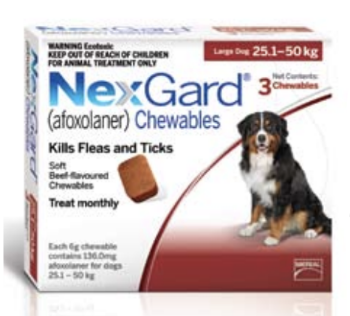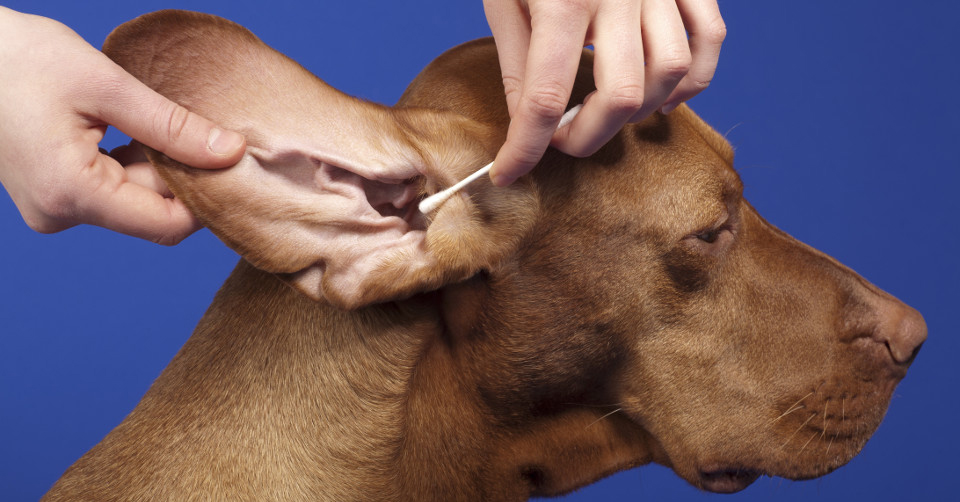Ear infections are one of the most common reasons for pet owners to consult with their vet. The condition becomes apparent when your pet constantly scratches its ears. Head shaking, reddening, scaling and swelling of the externally visible part of the ears are further pointers to an ear infection. The clinical examination will involve the exploration of the ear canal with an otoscope, to look at the lining, to check for foreign bodies and to establish the integrity of the tympanic membrane (ear drum). At the same time a smear is taken for cytology. The findings from the cytology in conjunction with the the otoscopical examination will allow the clinician to select a suitable topical medication for treatment. Strict adherence to the treatment protocol will in the vast majority of cases lead to rapid relief and disappearance of the symptoms.
Recurrent ear infections though can be much more difficult to treat, underlying causes can be immune-mediated or complicated by a ruptured tympanic membrane together with an infection of the middle ear. With exclusion of immune-mediated factors, the most common reason for recurrence of ear infections is non-compliance with the treatment instructions. Sometimes it is very difficult be compliant. Your dog resists the application of the medication because it is painful or you do not feel confident to deliver the right amount into the ear canal, then treatments are skipped, poorly delivered or shortened for example. It is also very important that the surface of the ear canal is clean before topical medication is administered, otherwise delivery of sufficient antimicrobial concentration cannot be achieved and this can lead to selection for resistant bacteria within the brown, surface sludge, which is also called a bio film. Sometimes these bio films have to be flushed out under general anaesthesia and sometimes only systemic antibiotic treatment will reach the site of infection especially when the ear canal has a fibrotic stenosis (narrowing). After all microbes are dead inflammation will often persist and systemic glucocorticoids might have to be given for a few weeks.
Either way, do not despair and do not hesitate to revisit the clinic for progress check-ups and most importantly remember why it is so important to adhere to the initial treatment plan protocol.

NexGard is registered pursuant to the
ACVM Act 1997 NoA011040

